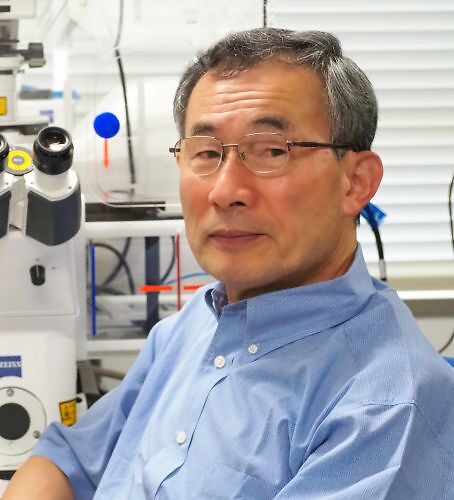Peroxisome biogenesis and human disorders

Date
Location
Description
■Speaker■
Professor Yukio FUJIKI, University of Hyogo, Hyogo; Kyushu University, Fukuoka, Japan
■Abstract■
Peroxisome, an intracellular organelle, functions in various metabolic pathways, including-oxidation of very long chain fatty acids, synthesis of ether-lipids such as plasmalogens, and H2O2 metabolism. The functional consequence of human peroxisomes is represented by fatal genetic peroxisome biogenesis disorders (PBD) such as Zellweger syndrome (ZS). We successfully isolated a dozen PEX genes encoding peroxisome biogenesis factors termed peroxins, including the first Zellweger gene PEX2 (Nature, 1991; Science, 1992). Fourteen peroxins have been identified in peroxisome biogenesis in mammals. By making use of another peroxisome-deficient Chinese hamster ovary (CHO) cell mutant ZP114, we recently found that the pro-apoptotic Bcl2 protein BAK regulates peroxisome membrane permeability and catalase export. I will also address mechanisms underlying the regulation of peroxisome protein import and membrane assembly. Next, to investigate mechanisms underlying pathogenesis of PBD, we established and analyzed a new PBD model mouse defective in Pex14, termed Pex14ΔC/ΔC mouse. Pex14ΔC/ΔC mouse manifests severe brain abnormality such as impaired dendritic development of Purkinje cells in cerebellum. The results suggest for the first time that dysregulation of the BDNF-TrkB pathway, an essential signaling for cerebellar morphogenesis, gives rise to the pathogenesis of cerebellum in PBDs.
■Keywords■
Peroxisome, peroxisomal protein import, peroxisome biogenesis disorders (PBD), peroxins, PBD model mouse, PBD pathogenesis
Subscribe to the OIST Calendar: Right-click to download, then open in your calendar application.



